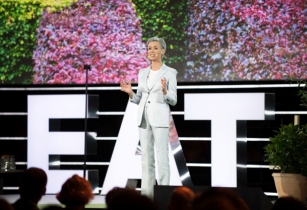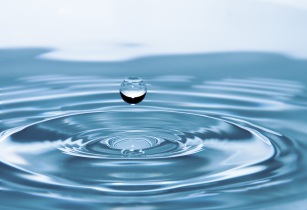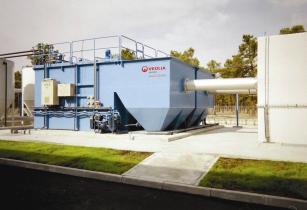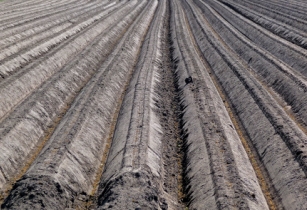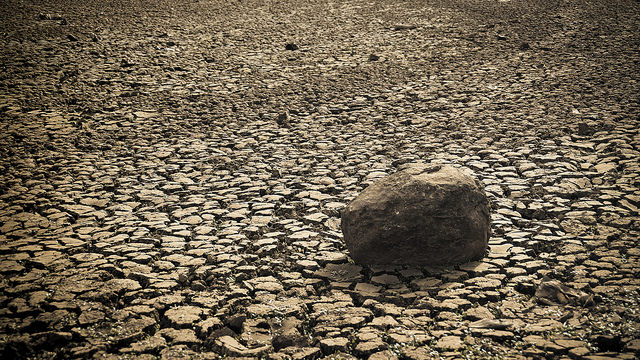Political leaders at the fifth annual EAT Stockholm Food Forum called for greater efforts to tackle issues plaguing the global food system
Water & Irrigation
AfDB joins global community to address water challenges
As a leading financing partner on water and sanitation services in Africa, the African Development Bank (AfDB), and two of its flagship water initiatives: the African Water Facility (AWF) and the Rural Water Supply and Sanitation Initiative (RWSSI) participated in the 2017 World Water Week in Stockholm, Sweden from 27 August to 1 September, on the theme: “Water and Waste: reduce and reuse”
Water, our lifeblood
By Ivy Latour, Marketing & Communications Director, Asia Industrial, Veolia Water Technologies
A most dynamic industry, the food and beverage (F&B) market has seen dozens of food trends come and go, survived several crises (avian flu, swine flu, mad cow disease, etc.), and has hung on through droughts due to poor weather. But for all its resilience, the F&B industry’s Achilles’ heel may just be the very thing that is required for its core business – water.
Widely used in food and beverage production, water is a critical component that the F&B industry cannot do without. The actual amount of water and energy that goes into producing each food or drink item can be staggering to the general public. For example, an astounding 53 gallons (or 200 litres, estimated) of water is used in the collective processes leading up to the production of a single egg, while a pint of beer requires nearly 20 gallons (75 litres) of water for production, excluding the water used to produce the cans and bottles to contain the beer. These indirect water contributions are difficult to quantify, so they are largely unknown and are not taken into consideration by the F&B industry.
Water is required in all stages of production in the F&B industry, from pre-production preparation to the food manufacturing process, and post-production stages (packaging, bottling, etc.). According to the United Nations, around 1.2 billion people, or almost one-fifth of the world’s population, are already living in water scarce environments, and 500 million more people are rapidly facing the same situation. Competition for water resources between industrial and domestic uses is therefore intensified, escalating overall water demand, leading to increased pressure on water supply. The growing stress on the water environment has led to water anxiety as industries across the world confront their water-bleak future.
The Industry’s Stand
As one of the biggest water consumers, the F&B industry is left vulnerable with the onset of increasing global water shortage. However, with more and more government authorities (e.g. China, Indonesia, and Thailand) imposing stringent water policies, environmentally responsible multinational corporations (MNCs) are increasingly taking the lead by investing in water recycling activities. Newly redefined environmental regulations are also impacting the way companies approach water conservation efforts. While companies may have imposed limp protocols to meet minimum guidelines in the past, manufacturers now embrace their corporate social responsibility, incorporating water sustainability solutions to better manage cost and water consumption.
The threat of water scarcity and growing water demand has influenced the F&B industry to be more mindful of its water footprint, and to implement better water management techniques. A paradigm shift can be seen in companies worldwide, with them moving away from passive water-saving methodologies to adopting advanced water technologies supplied by professional water and wastewater solutions providers like Veolia Water technologies (Veolia), whose technologies such as its Zero Liquid Discharge (ZLD) systems, Actiflo® clarifiers, and wastewater reduction systems have supported MNCs in reaching their sustainability goals. In addition, companies are also implementing water metric tools like Veolia’s True Cost of Water (TCOW) to help identify problematic water consumption areas, monetize water-related risks, and integrate derived costs in water management.
Zeroing in on Water Stewardship
With much at stake, it comes as no surprise that leading manufacturers are now actively taking steps to manage their businesses’ impact on the environment, and in particular, to reduce their water footprint. In addition to complying with local discharge standards, F&B manufacturers are assuming a higher level of corporate responsibility to treat their wastewater before discharge, so as to help protect the environment for long-term business sustainability and for future generations. Nestlé is one shining example of a market leader with such environmental and business foresight.
The decision by Nestlé to transform its dairy factory in Jalisco, Mexico, into the company’s first “zero water” manufacturing site in the world is hardly surprising. The Jalisco “Cero Agua” project is one of more than 376 initiatives Nestlé is undertaking in its factories around the world that are helping conserve water. Even as production has increased over the past 10 years, the company has reduced water withdrawals per ton of product by over one-third.
Located in the city of Lagos de Moreno in the water-stressed state of Jalisco, the dairy facility includes three adjacent plants, which produce ice cream, powder milk and cereals and share utilities, including water. In 2013, Nestlé awarded a contract to Veolia Water Technologies to treat the wastewater plant’s effluent for reuse. The polishing system installed by Veolia features its Aquantis membrane bioreactor, which produces a filtrate virtually free from solids. A further reverse osmosis treatment step retains dissolved solids and salts.
Inaugurated in late 2014, the new unit enables Nestlé to reuse the treated water for cooling, cleaning, and industrial uses, contributing to savings of 1.6 million liters of groundwater per day, equivalent to the average daily consumption of 6,400 people in Mexico. Nestlé plans to replicate this approach at other factories as it continues its drive to improve environmental performance.
In recognition for its efforts, Nestlé was recently conferred the Corporate Water Stewardship Award by Global Water Intelligence at the 2015 Global Water Summit held in Athens.
The Changing Water Landscape
Evidently, the F&B industry as a whole has become more conscious about the impact of their business actions on the environment. This is apparent from the actions that leading manufacturers (e.g. Nestlé) and other business owners have invested in to meet their green agendas, setting an example for others in the industry to emulate.
On all counts, the F&B industry is moving in the right direction, seeing as industry leaders are partnering professional water solutions providers to implement water-saving and recycling methodologies. In choosing to actively manage their water footprint, F&B leaders are one step closer to achieving sustainable growth. Water has yet to run out completely, but as the undervalued resource becomes increasingly stretched, better water management is needed to support the viability of businesses in the long-term, and to ensure that water remains accessible to all.
The fight against soil degradation
A University of Bologna coordinated scheme, co-funded by the LIFE program 2014-2020 aims to provide proper irrigation management to fight against soil degradation
Historic water scarcity and drought summit
Australia will host 200 leaders from the public and private sector, including government ministers, business and civil society leaders and leading scientists at a historic summit on water scarcity and drought on 10 October this year




